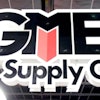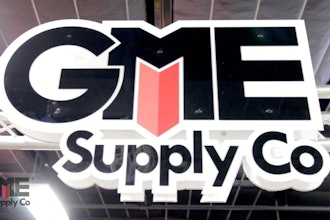WASHINGTON (AP) — Congressional investigators said Wednesday that Johnson & Johnson hired a private company that bought up defective packets of pain relievers in 2008 before recalling the pills months later, after prodding from federal regulators.
The new questions about J&J's handling of quality issues came during a hearing about its latest recall involving over 100 million bottles of children's medicine, some of which contained tiny particles of metal.
"This is an issue of trust, when parents and grandparents give these medicines to their children they want to be confident that they are not harmful," said Rep. Edolphus Towns, D-N.Y., who chairs the House Committee on Oversight and Government Reform.
Last month J&J's McNeil division recalled more than 40 varieties of children's medicines after the Food and Drug Administration discovered a slew of violations at a company plant.
The FDA has not linked the recalled products to any health problems.
Colleen Goggins, J&J's president for McNeil consumer products, told lawmakers the company has already taken steps to fix the problems, including shaking up its management structure.
But she had few answers to questions about an alleged "phantom recall" of more than 88,000 packets of Motrin, a pain reliever containing ibuprofen. According to FDA documents, J&J learned about a formulation problem in November 2008 that interfered with the pills' dissolving action, causing them to lose potency.
J&J then hired an outside contractor to collect samples of the product — mainly sold in gas stations — and determine whether a recall was necessary.
But instead of sampling the product, the contractor began purchasing large quantities of Motrin and instructing its employees not to mention a recall.
A memo titled "Motrin Purchase Project," distributed during the hearing states: "You should simply 'act' like a regular customer while making these purchases. There must be no mention of this being a recall of the product!"
Goggins said the FDA was aware of the contractor's activities, but she couldn't answer questions about the memo or even why the company was originally hired.
"I can't tell you about the behavior of those contractors, but the FDA was aware of the action," Goggins said. "There was no intent to mislead or hide anything."
FDA's Deputy Commissioner Joshua Sharfstein said the agency was alarmed to learn about the mass purchases.
"I don't think we fully understood what was going on, but it was troubling to us," said Sharfstein, adding that the incident "reflected poorly on the company."
J&J eventually recalled the lots of Motrin in July 2009 after being confronted by FDA staff.
Chairman Towns said he would continue investigating the "phantom recall" and asked Goggins to follow up on the committee's questions.
"Who at McNeil and Johnson & Johnson knew about this scheme?" asked Towns "How high up in the corporate suite was this scheme hatched?"
In testimony Thursday, Sharfstein laid out J&J's repeated violations of quality and manufacturing standards, which have resulted in three recalls in the last eight months.
FDA held a meeting with J&J executives in February, pressing them to improve their operations.
"FDA told the company's leadership that significant, immediate steps were needed to address issues of compliance and quality," said Sharfstein.
Sharfstein said the agency is considering taking enforcement action against the company, including "seizure, injunction or criminal penalties."
Since the April 30 recall, the FDA has received hundreds of reports of complications with J&J products, though the agency has not directly linked any medical problem to the recalled medicines.
The recall involved children's versions of Tylenol, Benadryl, Motrin and other products that make up nearly 70 percent of the market for pediatric medications.
New Brunswick, N.J.-based J&J has long enjoyed a sterling reputation for safety, earned in the 1980s for quickly pulling bottles of Tylenol that had been tainted with cyanide.
J&J had its sales force remove 264,000 Tylenol bottles from store shelves and consumers were urged to return any Tylenol they had for a safe bottle. The company actually took first place in a poll of corporate reputations last year.
J&J shares fell 22 cents to $58.90 in afternoon trading Thursday.


















